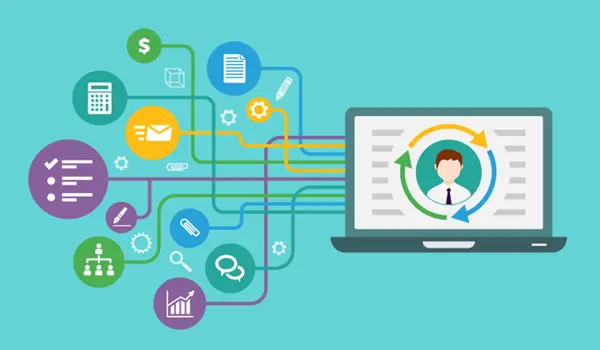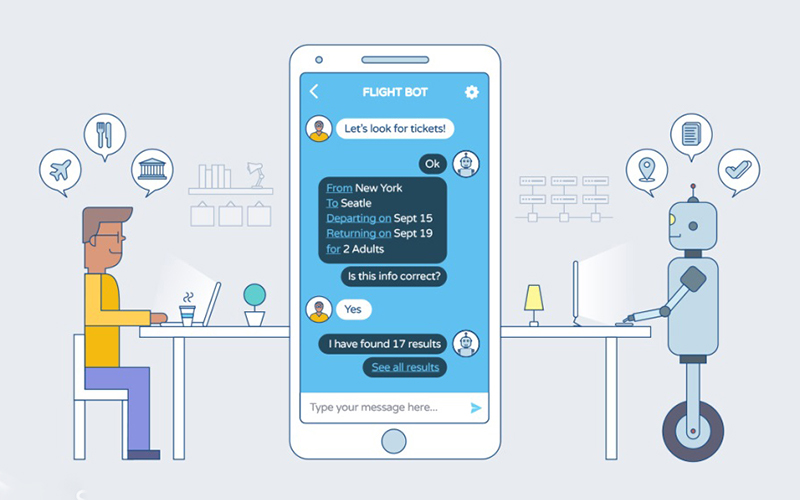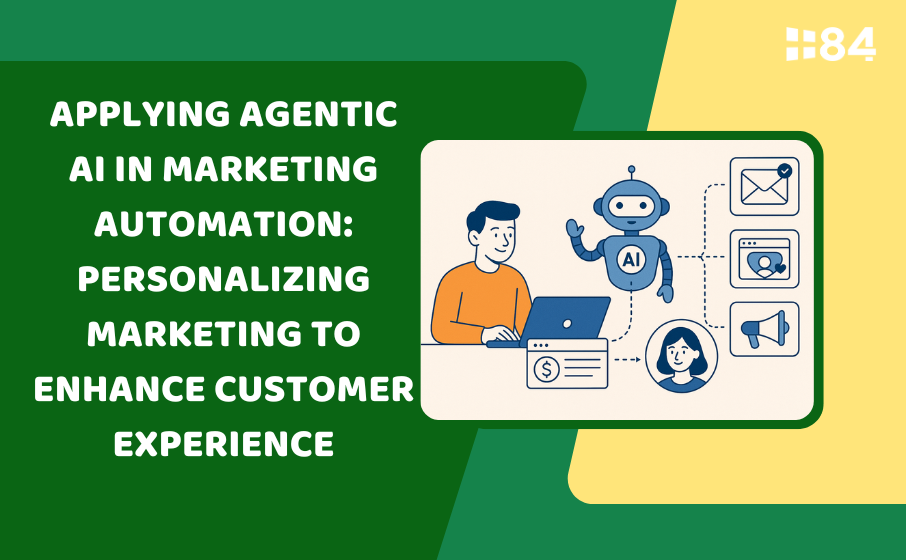Have you ever received a marketing email that felt completely irrelevant to you? Or seen an ad for a product you’ve never shown interest in? That’s a telltale sign of a poorly personalized marketing campaign.
Today’s customers expect more. They want to be treated as individuals—with content tailored to their preferences, delivered at the right time, and aligned with their specific needs. This is where Agentic AI and Marketing Automation (MA) come together to deliver truly personalized and effective marketing experiences.
So, how does Agentic AI enhance MA strategies? How can businesses leverage this technology to maximize marketing effectiveness? Let’s explore how Agentic AI optimizes MA strategies, helping companies stand out in the market and deliver exceptional customer experiences.
How Agentic AI Personalizes Marketing Automation?
In the digital age, customers expect not only engaging marketing campaigns but also personalized experiences that match their needs, preferences, and timing. If marketing content misses the mark—delivered to the wrong person or at the wrong time—it’s quickly forgotten.
So how do we transform MA from a rigid machine into a smart, adaptive system that “reads” customers and optimizes in real time?
The answer lies in Agentic AI—a technology that turns every customer interaction into a deeply personalized experience, guiding them closer to making a purchase decision.
1. Real-Time Customer Analysis
Traditional MA platforms often follow pre-set workflows: once emails, messages, or ads are scheduled, they run automatically—regardless of whether the customer is interested.
But Agentic AI changes the game entirely. It doesn’t just track—it analyzes, predicts, and adjusts marketing content in real time, ensuring brands connect with the right customer in the right way at the right moment.

How does AI personalize marketing?
- Instant behavior analysis: When a customer performs an action—like opening an email, clicking an ad, or searching for a product—AI immediately captures and analyzes the data.
- Predicting shopping intent: Instead of waiting for customers to speak up, AI can identify intent signals from behavior—even when customers aren’t fully aware of their own needs.
- Personalizing marketing content: No more generic messages—AI selects the most relevant content based on interaction history, preferences, and context.
Example: A customer repeatedly views a product but hasn’t clicked “Buy Now”? Agentic AI instantly triggers a reminder email with a personalized discount code—nudging the customer toward a decision.
The result: No more irrelevant, broad campaigns. Instead, personalized messages hit the right notes—dramatically increasing conversion rates.
2. Contextual Marketing Content
Reaching the right audience is just the beginning. To truly make an impact, brands must deliver messages at the right moment and in the right context. That’s where AI becomes a master of personalization—ensuring content not only appears at the perfect time but also resonates emotionally.
How does AI personalize content contextually?
- Smarter email marketing: If a customer just purchased a laptop, instead of sending a generic email, AI suggests accessories like a protective case, wireless mouse, or antivirus software—items they might need right now.
- Interest-based dynamic ads: A user who loves travel? AI automatically shows discounted tours to destinations they frequently search for.
- Personalized websites: The same website looks different for each visitor—products, messages, and visuals are tailored based on browsing history.
The result: Customers feel understood, engagement increases, click-through rates rise, and conversions improve significantly.
3. Automating Customer Responses
In the digital age, customers expect instant responses—even in the middle of the night or on weekends. If businesses don’t respond in time, customers will quickly turn to competitors.
That’s where Agentic AI steps in as an intelligent assistant, enabling businesses to deliver fast, accurate, and highly personalized responses.

How does AI automate customer support?
- Smart AI chatbots: These aren’t just basic responders anymore. Modern chatbots can handle complex queries, converse naturally, and provide seamless customer experiences.
- Right-channel engagement: If a customer doesn’t respond to email, AI can pivot to SMS, WhatsApp, or even serve reminder ads on Facebook.
- Predicting customer churn: If AI detects signs that a customer is about to abandon their cart or disengage from the brand, it automatically triggers an offer, discount, or timely reminder to retain them.
Real-world example – Eximbank’s AI-powered chatbot
Since October 2018, Vietnam Export Import Commercial Joint Stock Bank (Eximbank) has deployed an AI chatbot named MAI, built on the FPT.AI platform. Operating 24/7 on their website and Facebook fanpage, MAI helps customers:
- Check account information.
- Explore banking products and services.
- Get quick answers to frequently asked questions.
The chatbot has not only reduced workload for staff but also enhanced customer experience with fast, accurate responses. (Source: Eximbank)
How to Leverage Agentic AI in Your MA Strategy?
MA already helps businesses automate many marketing processes—but it still has a major weakness: lack of flexibility. Campaigns often follow fixed schedules and can’t adapt quickly to changing customer behavior. This is where Agentic AI offers a breakthrough.
Agentic AI not only personalizes content but also automatically optimizes campaigns in real time—ensuring businesses reach the right customer, at the right time, with the most relevant message.
1. Real-Time Campaign Optimization
Imagine sending a promotional email at 9 a.m., but your customer only checks email in the evening. Or running Facebook ads when your target audience spends more time on TikTok. These seemingly minor missteps can cost you valuable engagement and waste your marketing budget.
Agentic AI eliminates that problem by making campaigns smarter:
- Optimal send times: AI no longer follows static schedules—it analyzes each customer’s email habits and identifies the golden moment when they’re most likely to engage.
- Context-aware ad personalization: Instead of relying on generic interests, AI adapts ad content based on location, weather, shopping behavior, and more. If someone’s searching for flights to Da Nang, AI will show hotel and tour ads in that region—perfectly aligned with their needs.
The result: Content reaches customers at the right time, in the right place, with the right offer—boosting conversion rates and reducing marketing waste.
2. Cost Optimization and Revenue Growth
Marketing isn’t just about reaching customers—it’s about spending wisely. You could spend thousands on a high-visibility channel, but if it doesn’t deliver results, even the most creative campaign falls flat.
AI helps businesses “spend smarter” by:
- Automated budget allocation: AI continuously monitors ad performance across channels (Facebook, Google Ads, TikTok…) and adjusts budgets in real time—investing more in high-performing platforms and scaling back on underperformers.
- Reduced personnel costs: Repetitive tasks like customer segmentation, email scheduling, and ad optimization are now handled by AI—freeing up marketing teams to focus on creative strategy.
- Optimized ad content: AI analyzes customer feedback in real time and adjusts messaging, visuals, and headlines to maximize conversion.
Example: If AI sees that TikTok ads are outperforming Google Ads in conversions, it automatically shifts budget to TikTok—maximizing ROI without overspending.
The result: Reach the right customers at the lowest cost, dramatically increasing ROI.
Challenges of Implementing Agentic AI – What Should Businesses Watch Out For?
Agentic AI promises a new era of personalized marketing and smart automation. But like any advanced technology, adopting AI is both revolutionary and complex. To use AI effectively and safely, businesses must navigate the following three critical challenges:
1. Customer Data Privacy
AI thrives on data—and the more data it has, the smarter it becomes. But this also raises a crucial question: How can businesses collect and use data legally and securely?
Today’s customers are deeply concerned about privacy. AI collecting, analyzing, and using personal data can trigger serious concerns. Without compliance with regulations like GDPR (Europe), PDPA (Asia), or CCPA (USA), companies risk heavy fines—and losing customer trust.

Solutions:
- Create transparent, well-defined data collection and processing policies.
- Collect data only with customer consent.
- Encrypt and protect data to prevent breaches.
2. Transparency and Fairness
A major concern around AI is algorithmic bias. If AI is trained on unbalanced datasets, it may produce unfair results—damaging customer experience.
Example: If a financial AI system is trained mostly on one demographic, it may unintentionally exclude other qualified customers—hurting both brand equity and business performance.
Solutions:
- Train AI on diverse datasets that reflect true customer profiles.
- Regularly audit algorithms for signs of bias.
- Allow human oversight and intervention when necessary.
3. Ongoing Monitoring and Adjustment
AI is powerful—but it’s not perfect. If left unchecked, AI can go off-track and create negative customer experiences.
Example: An automated email campaign might keep sending messages to customers who’ve already expressed disinterest. Or AI may serve irrelevant ads, hurting campaign effectiveness.
Solutions:
- Continuously monitor AI-driven campaigns to ensure they’re on the right path.
- Combine human oversight to correct any missteps.
- Always have contingency plans in place for unexpected AI behavior.
Conclusion
The marketing world is entering a new era—where customer experience is no longer constrained by rigid, inflexible campaigns. The combination of Agentic AI and Marketing Automation unlocks the potential for truly personalized marketing—where every customer feels heard, understood, and uniquely cared for.
With the power of Agentic AI, businesses can:
- Deliver real-time personalized content—right message, right time, right audience.
- Automatically optimize campaigns—constantly learning and adapting for maximum impact.
- Lower costs and boost revenue—smart budget allocation that focuses on what truly matters.
So, are you ready for the future of marketing? If not, now is the perfect time to start. Let AI help you create breakthrough campaigns, deliver deeper personalized experiences, and take your business further than ever before.


